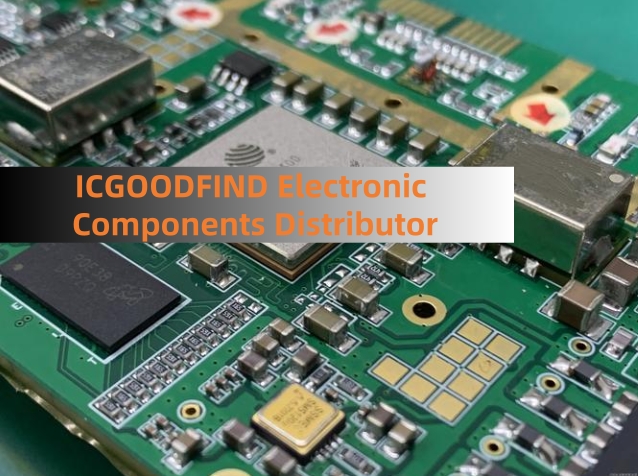BCM84834B1KFEBG: A Comprehensive Technical Overview of Broadcom's Single-Port Gigabit Ethernet PHY Transceiver
In the realm of high-speed networking infrastructure, the physical layer (PHY) transceiver is a critical component responsible for the essential interface between the digital world of a network controller and the analog signals traversing the twisted-pair cable. Broadcom's BCM84834B1KFEBG stands as a premier example of a highly integrated, single-port Gigabit Ethernet (10/100/1000BASE-T) PHY transceiver, engineered to deliver robust performance, exceptional power efficiency, and advanced management capabilities for a wide array of applications, from enterprise switches and routers to network interface cards and industrial equipment.
Architectural Prowess and Core Technology
At its heart, the BCM84834B1KFEBG is built upon a sophisticated mixed-signal architecture. It incorporates a high-performance DSP (Digital Signal Processing) core that executes complex algorithms for echo cancellation, cross-talk suppression, and equalization. This advanced signal processing is paramount for achieving robust link integrity and exceptional signal clarity over standard Category 5e/6 cabling, even in electrically noisy environments. The device fully complies with the IEEE 802.3ab standard for 1000BASE-T operation, ensuring seamless interoperability with other standards-compliant equipment.
A key feature of this transceiver is its support for Energy-Efficient Ethernet (EEE or IEEE 802.3az). This technology allows the PHY to enter a low-power idle state during periods of low data activity, dramatically reducing power consumption without sacrificing the ability to quickly resume full-speed operation when traffic demands it. This is a crucial capability for modern data centers and enterprise networks where operational efficiency and sustainability are top priorities.
Advanced Management and Diagnostics
The BCM84834B1KFEBG offers comprehensive management interfaces, primarily through a standard IEEE 802.3 Clause 22/45 Management Data Input/Output (MDIO) interface. This allows a host MAC controller to configure the PHY's numerous settings and monitor its real-time status. Furthermore, it integrates advanced cable diagnostic functions. These capabilities enable network administrators to perform precise fault identification, such as determining the distance to a cable fault (open or short), which significantly reduces mean time to repair (MTTR) and simplifies network maintenance.
Hardware Integration and Package

Housed in a compact, space-saving 76-pin QFN (Quad-Flat No-Leads) package, the BCM84834B1KFEBG is designed for high-density board layouts. Its small form factor makes it an ideal choice for modern, compact networking hardware. The device requires a single 3.3V power supply, simplifying power management design. Its reference clock input is also highly flexible, accepting multiple common frequencies, which eases integration with various MAC and switch ASICs.
Application Spectrum
The versatility of the BCM84834B1KFEBG allows it to serve a broad spectrum of applications. It is a fundamental building block in:
Enterprise Network Switches: Providing the physical port connectivity for managed and unmanaged switches.
Network Interface Cards (NICs): Serving as the PHY component in server and client adapter cards.
Embedded Systems and Industrial Networking: Where its reliability and diagnostic features are valued for critical operations.
Telecommunications Equipment: Used in routers, gateways, and access points.
The Broadcom BCM84834B1KFEBG exemplifies a mature yet highly advanced Gigabit Ethernet PHY solution. It successfully balances high-performance data transmission with industry-leading power efficiency, all while packing critical management and diagnostic tools into a minimal footprint. For designers seeking a reliable, fully-featured, and efficient single-port Gigabit PHY, this transceiver represents a top-tier choice from a leading semiconductor innovator.
Keywords: Gigabit Ethernet PHY, Energy-Efficient Ethernet (EEE), Cable Diagnostics, IEEE 802.3ab, MDIO Management
